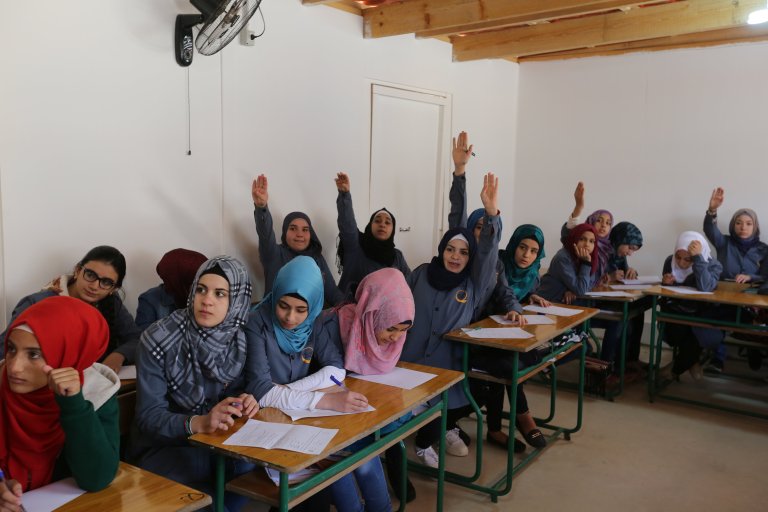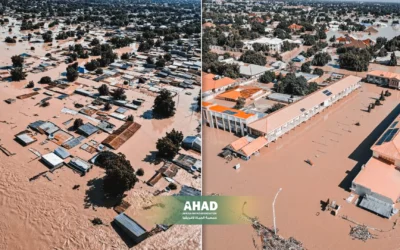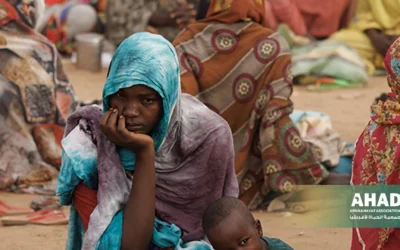Why the education system in Niger is so bad
Niger is considered one of the poorest countries in the world, which significantly affects various aspects of life in it, including the education system. The educational system in Niger is experiencing multiple and complex challenges, which has led to a low level of education and a deterioration in its quality. In this article, we will review the main reasons why the education system in Niger is so bad, giving an overview of the current situation and the challenges facing this system.
The education system in Niger challenges and causes of low quality
Poverty and economic instability
Niger ranks high among the poorest countries in the world, where a significant part of its population lives below the poverty line. Many children lack the basic resources to attend school and continue their education. These resources include textbooks, appropriate clothing, and the necessary means to get to schools. In addition, many children are forced to work to help their families secure basic needs, which reduces their chances of continuing education. Such economic conditions restrict children’s opportunities to get a quality education, which negatively affects the human and societal development of the country.
The Nigerian government is experiencing a severe shortage of financial resources, which leads to insufficient funding allocated to the education sector. This lack of funding is reflected in the educational infrastructure, which remains inadequate. Many schools lack adequate classrooms, and educational equipment is often unavailable. This leads to inappropriate educational conditions that negatively affect the quality of education provided to pupils.
Insufficient infrastructure
In Niger, rural areas in particular suffer from an acute shortage of the number of schools and classrooms. Children in these areas have to travel long distances to get to the nearest school, which makes education difficult and unsustainable for many of them. This situation leads to high school dropout rates, especially among girls who face additional challenges related to safety and traditional beliefs that prefer them to stay at home.
Many schools in Niger suffer from severe deterioration of buildings and facilities. Some schools lack proper seating, safe drinking water, and basic sanitation facilities. Such conditions lead to an unhealthy and unsafe educational environment, which negatively affects the health and psychological and physical well-being of students, and, consequently, their academic performance.
Lack of teachers and low quality of Education
There is a significant shortage of qualified teachers in Niger. This shortage is due to weak training programs and the lack of sufficient financial or moral incentives to attract and retain competent teachers. A lot of current teachers are not sufficiently trained, which directly affects the quality of the education provided. Quality education requires qualified teachers who are able to effectively present information and motivate students to learn.
Teachers in Niger receive very low wages and work in difficult conditions. Such low wages and an uncomfortable working environment lead to low motivation of teachers, which affects their interest in developing themselves and following the progress of their students. As a result, the level of education in general is declining, as teachers lose their enthusiasm and ability to provide an inspiring and effective educational experience.
Cultural and social factors
In some regions, traditional beliefs play a big role in discouraging education, especially for girls. Some parents prefer to marry their daughters at an early age instead of sending them to school. These practices reduce the percentage of girls ‘ enrollment and continuity of Education, depriving them of opportunities to improve their lives and future.
There is a lack of awareness of the importance of education in some Nigerian communities. Some families do not see a clear benefit from sending their children to schools, especially in difficult economic conditions. This mentality leads to high school dropout rates, as children and their families prefer to engage in income-generating work instead of investing in education, the benefits of which may not appear immediately.
The security and political situation
Niger is experiencing armed conflicts and political tensions that affect the stability and security of the country. These conflicts significantly disrupt education, with schools closing in affected areas, and children being forced to be displaced or even join armed groups in some cases. This situation further complicates the process of providing children with a stable and sustainable education.
The political instability in Niger affects the government’s ability to implement effective and sustainable education policies. Frequent changes in leadership and policies lead to fluctuation in the implementation of educational plans and their discontinuity, which hinders the improvement and long-term development of the education system.
Lack of investment in education
Niger suffers from a lack of government investment in the education sector. Limited resources are often directed to other sectors, such as security and defense, leaving education in a state of neglect and shortage. Without adequate investments, it is not possible to develop the educational infrastructure or improve the quality of the education provided.
Despite some international assistance that Niger receives, it is not enough to develop a sustainable education system. The education sector needs large and sustainable investments to improve its infrastructure and quality. International support can play a vital role in improving education in Niger, but this support must be continuous and well coordinated to achieve the best results.
The education system in Niger faces significant and complex challenges that require concerted efforts by the government and the international community to improve it. This includes increasing funding, improving infrastructure, qualifying teachers, and raising community awareness of the importance of Education. Without these efforts, education in Niger will continue to suffer from a deterioration in quality, affecting the future of future generations and their ability to achieve sustainable development. Improving education in Niger is not just a national challenge but an international responsibility that requires cooperation and coordination to ensure a better future for Niger’s children.
You can visit the AHAD website to find out more about the projects it offers
ALSO READ
WHAT THE FOOD BASKET CONTAINS IN AHAD
Join us in our message





